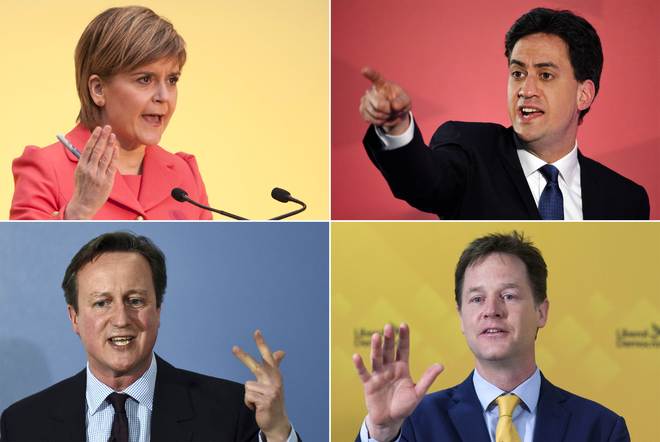Shyam Bhatia in London
With opinion polls still finely balanced, the outcome of the British General Election is still anybody’s guess.
Until a week ago, opinion polls showed the two biggest parties, Conservatives and Labour, matching each other with each attracting 34% support.
In recent days, the Conservatives have edged slightly ahead with the Conservatives slightly ahead at 34 % against Labour’s 33 %.
In these circumstances the smaller parties will hold the key to who manages to if their larger counterparts fail to reach the finishing line of 325 where one party has more than the other parties put together.
If no party manages to get enough MPs to get through enough MPs to form a majority on its own the resulting hung parliament – just as enough in the 2010 elections will result in talks to form a coalition with either Conservative leader or Labour leader Ed Miliband seeking backing to propel themselves into power at 10 Downing Street.
In the outgoing Parliament, the Liberal Democrats with 56 seats were the single largest of the smaller parties, followed by the Democratic Unionists and Sinn Fein from Ireland with a combined total of 15, the Scottish Nationalists or SNP (eight), Plaid Cymru from Wales with three, the far right United Kingdom Party (UKIP) with two seats, as well as others like the Greens with one seat each.
When it comes to the new Parliament meeting for the first time on May 18, the Scottish Nationalists are widely expected to displace the Liberal Democrats by sweeping the polls in Scotland and winning a minimum of 50 seats. Another big unknown is UKIP, widely expected to add to its current total of two seats.
The SNP have declared they want to abolish Britain’s Trident nuclear weapons, UKIP say they want a referendum this year on Britain’s membership of the European Union (EU) and the Liberal Democrats insisting on modest increases in the national spending budget.
Some unique features of the lead-up to the election, which invoke comparisons with what happens in India, are claims that sections of the South Asian parliament are being intimidated into handing over their postal votes.
Nazir Afzal, whose famly originate from Pakistan, has been quoted as saying that Asian voters are being intimidated to support specific candidates.
“Recent prosecutions show that Asian people have been disproportionately involved in postal election fraud”, he said. “What we’re seeing is the feudal politicking of South Asia being brought to Britain” he was cited as telling the Times.
Similar allegations have been made by the head of a gurdwara in the town of Gravesend who has drawn the attention of the local police and voters to claims that some looters with poor English skills are being pressured into using their postal votes into voting in one particular way.
Gurdwara president Davinder Singh Bains says in his widely distributed letter to voters, also copied to police, “It is for you to decide who you want in charge in Gravesham and our country: it is not for people who want elected office to decide for us.
“So please use your vote for whoever you want, to make your voice heard – but do not allow anyone to steal your vote from you.”
Unlock Exclusive Insights with The Tribune Premium
Take your experience further with Premium access.
Thought-provoking Opinions, Expert Analysis, In-depth Insights and other Member Only Benefits
Already a Member? Sign In Now










